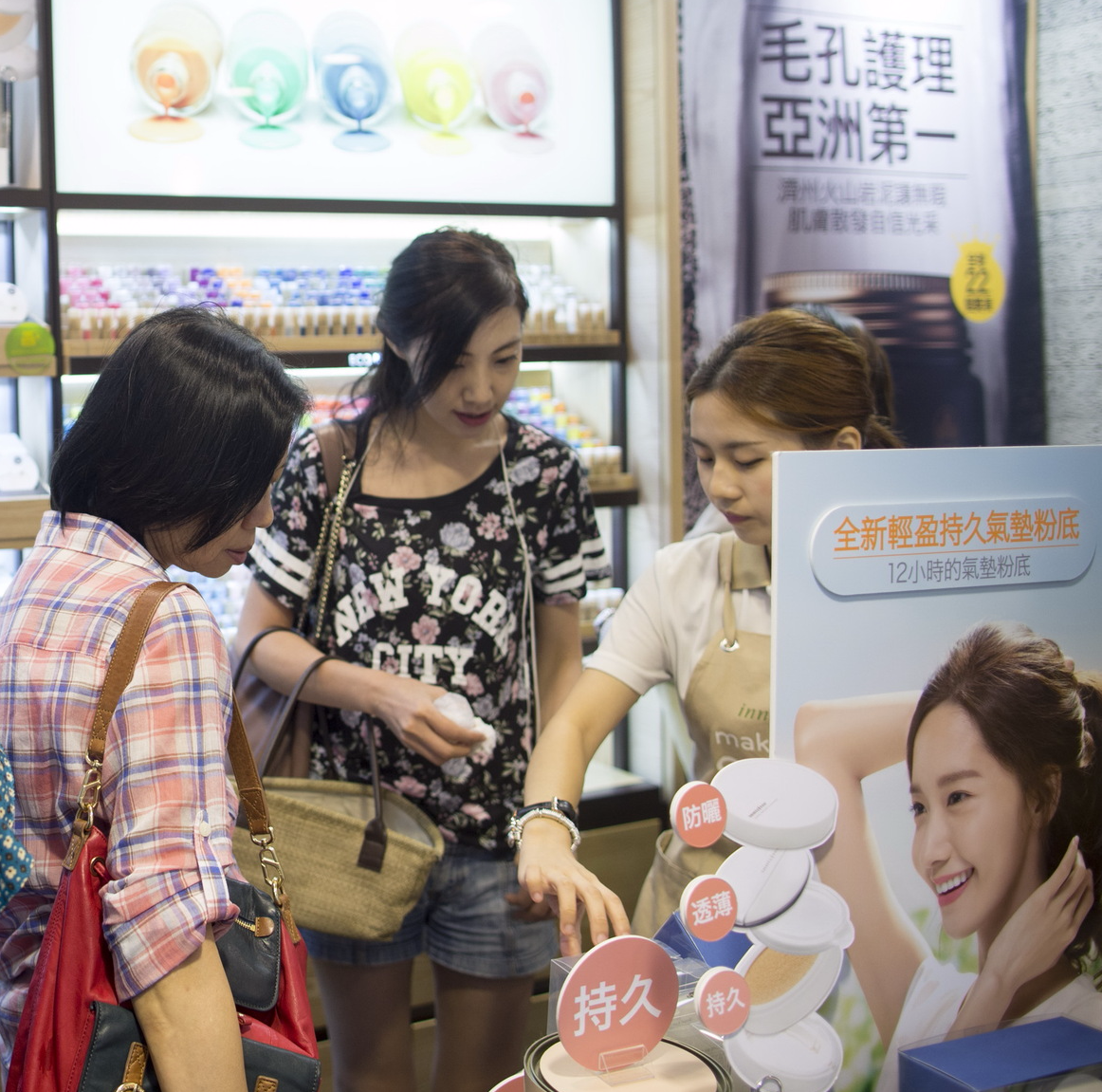South Korea's Innisfree launches smart stores


Bestselling South Korean cosmetics brand in China, Innisfree, is partnering with Alibaba Group Holding Ltd to open the first smart store in the beauty industry, as announced by the two parties on Wednesday.
Located in Hangzhou, capital of Zhejiang province, where the e-commerce giant is headquartered, the store features such facilities as a "magic mirror" that allows customers to put on virtual makeup by simply looking at the screen. It also offers a smart skin examination machine that can store users' skin condition in their Tmall accounts and tailor make skin solutions, and a "cloud shelf" that can display a vast amount of products and their reviews online.
"When we are talking about smart stores in the context of beauty and cosmetics today, it's not only about having a few touch screens that show what types of products you have," said Gu Mai, president of the consumer goods division at Tmall, an Alibaba company.
"Instead, by connecting our online big data with offline stores, we hope better shopping experiences can be curated for the ever-changing needs of our young consumers, so that they can stay longer and spend more," he said.
It is expected that 60 of Innisfree's stores in Shanghai and Hangzhou will undergo such digitalization and smartization by the end of this year.
Since entering China in 2012, the Jeju Island-based beauty brand has opened 500 stores across the country, almost twice the number of its Western or Chinese counterparts.
With China as its largest market, it enjoyed robust revenue growth of more than 30 percent during the first half of this year, according to the company's figures. In 2017, industry insiders estimated it has consolidated 4 billion yuan ($600 million) of sales in the country.
Cai Jianren, general manager of the brand's China market, said offline sales account for 70 to 80 percent of the company's sales. He thinks that proportion is unlikely to change much in the near future.
"This means we should be even faster and more sensitive to the preferences and shopping habits of our young consumers, who have been spoiled by China's e-commerce trends," Cai said.
Consultancy Mintel research finds that South Korean brands claim a stronger appeal among consumers below the age of 25 in China, while older customers are more likely to choose more premium brands.
Gu from Tmall said that although cosmetics and skincare products have been enjoying higher than 100 percent average annual sales growth on its platform in the past few years, the offline market remains the "main battleground" for the industry.
With the new technologies and big data shared by Alibaba, which is provided free for brands and companies, Gu said he hopes such smart stores can be applied across the entire industry, not only by the thousands of retail spaces of AmorePacific Corp, the parent company of Innisfree.




































